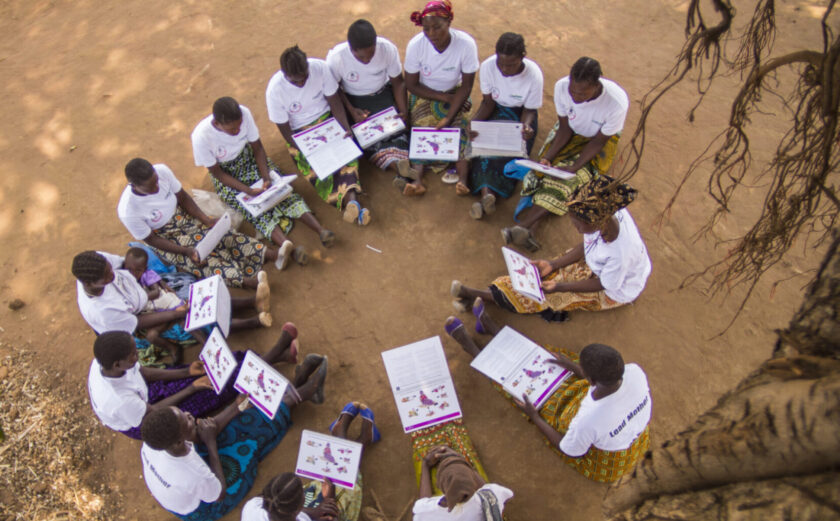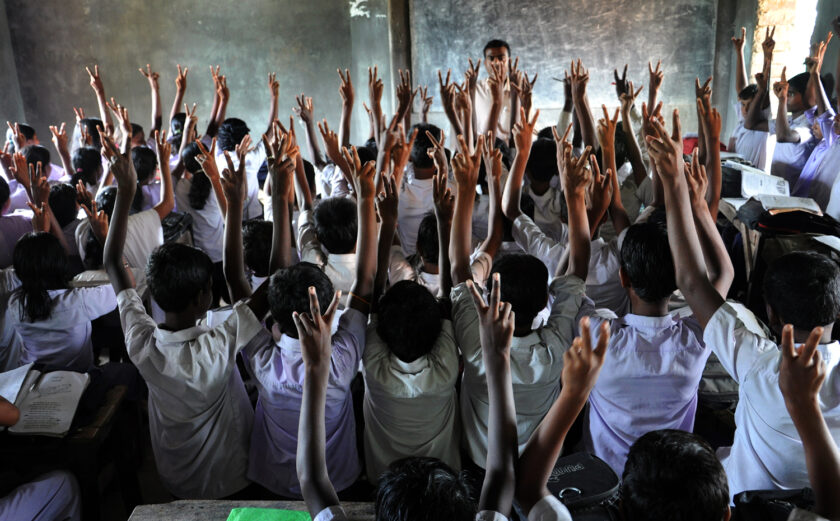
The Future of NGOs: Five Tips on Responding to a Changing World
What top tips do CEOs have on how NGOs can respond to a changing world? During an InterAction Forum breakout session, five executives shared their top tips.
Understand what your asset is.
Americares is a health-focused relief and development organization that responds to people affected by poverty or disaster with life-changing medicine, medical supplies, and health programs. Recently, Americares rethought a decades-old strategy, bringing clarity to their focus and niche. In turn, they expanded and diversified their revenue streams and program impact.
Michael Nyenhuis, CEO of Americares, spoke about the experience. His advice? Take a step back and look past standard assumptions to understand what your greatest asset is. For Americares, it was not its strength in pharmaceutical distribution, but rather the relationships that were built through a network of thousands of local health centers. Americares has developed its health programs to strengthen the capacity of those health centers to serve their communities more effectively, thereby improving health outcomes at the local level.
Create space for out-of-the-box possibilities.
International Youth Foundation (IYF) connects young people with opportunities to transform their lives. Their holistic approach emphasizes life skills in combination with a mix of technical, vocational, and entrepreneurship training.
IYF grew its corporate base – and as a byproduct needed to make up an overhead deficit. They chose to leverage their intellectual property through sales. Susan Reichle, CEO of the IYF stated her top tip was, “Think about how to create the space for staff innovation, try things that are counter-culture, and learn how to support your staff to success.”
IYF selling their Passport to Success life skills program expanded the impact and covered overhead. Enacting was not so straight forward – they had to counter the tough myth that NGOs are resource distributors, not resource earners. Susan shared business case data with staff to develop their internal buy-in. Still, hard sales were a culture shift. IYF brought in people with different skillsets and taught staff how to integrate their sales colleagues. Making this change required internal adjustment – it also scaled their impact and generated revenue to invest back into IYF.
Look outside your organization and be relationship-oriented.
Catholic Relief Services (CRS) is the official international humanitarian agency of the Catholic community in the United States. The agency alleviates suffering and provides assistance to people in need in more than 100 countries, without regard to race, religion or nationality.
As part of big bets within their 2030 strategic plan, CRS changed the emphasis from an implementer to a relationship organization. This looks like bringing local partners into government relationships and listening over telling. With the increase in credentialization of local capacity, this is shifting from capacity building to capacity sharing. It is promoting local relationships while maintaining CRS’ global identity. Rather than severing relationships or ceding, this is switching roles to recognize, support, and promote local leadership, and staying engaged. As CEO Sean Callahan notes, “we cannot end malaria alone.”
Governance matters
Water for South Sudan delivers life-changing, sustainable, locally-led programs that strengthen individuals, families, communities and the nation of South Sudan. Water for South Sudan was more successful than it dreamed it would be – so much so that it was challenging to draw its own organizational structure. Operating in such an outgrown matter caused strain. CEO Lynn Malooly’s top tip: don’t wait; have the courageous conversations, both in speaking and in listening. There is a human element to negotiating governance into words on paper. When governance mechanisms are in place there is something to fall back on that is not personal. Forming structure, processes, and policies felt daunting and also created vital role clarity.
Mindset is the solution.
Team Rubicon utilizes the skills and experiences of military veterans with first responders to rapidly deploy disaster and humanitarian crisis emergency response teams across the United States and around the world. Team Rubicon looks at itself as a tech startup in addition to a disaster response organization. They share their technology with other non-profits, open-source, and build systems in partnership from the field. Team Rubicon CIO and CTO Raj Kamachee’s top tip: ingrain the ‘imagine if’ mindset that anything is possible. And supplement with change management, so staff knows tough times, i.e. ‘the valley of despair,’ are simply part of the process. Sell the service mindset of unlimited possibility.
The majority of InterAction CEOs in a recent survey report that their organization is not changing as fast as the external environment demands. And they are acting. While the precise challenge and solution will vary by organization, hearing each other’s journeys and learnings can spark inspiration and build a supportive community. What InterAction support do you think would catalyze InterAction member adaptation – or revolutionization – in a changing world? Share your thoughts with NGO Futures director Deborah Willig at dwillig@interaction.org and follow this link for more on the changing operational ecosystem.






